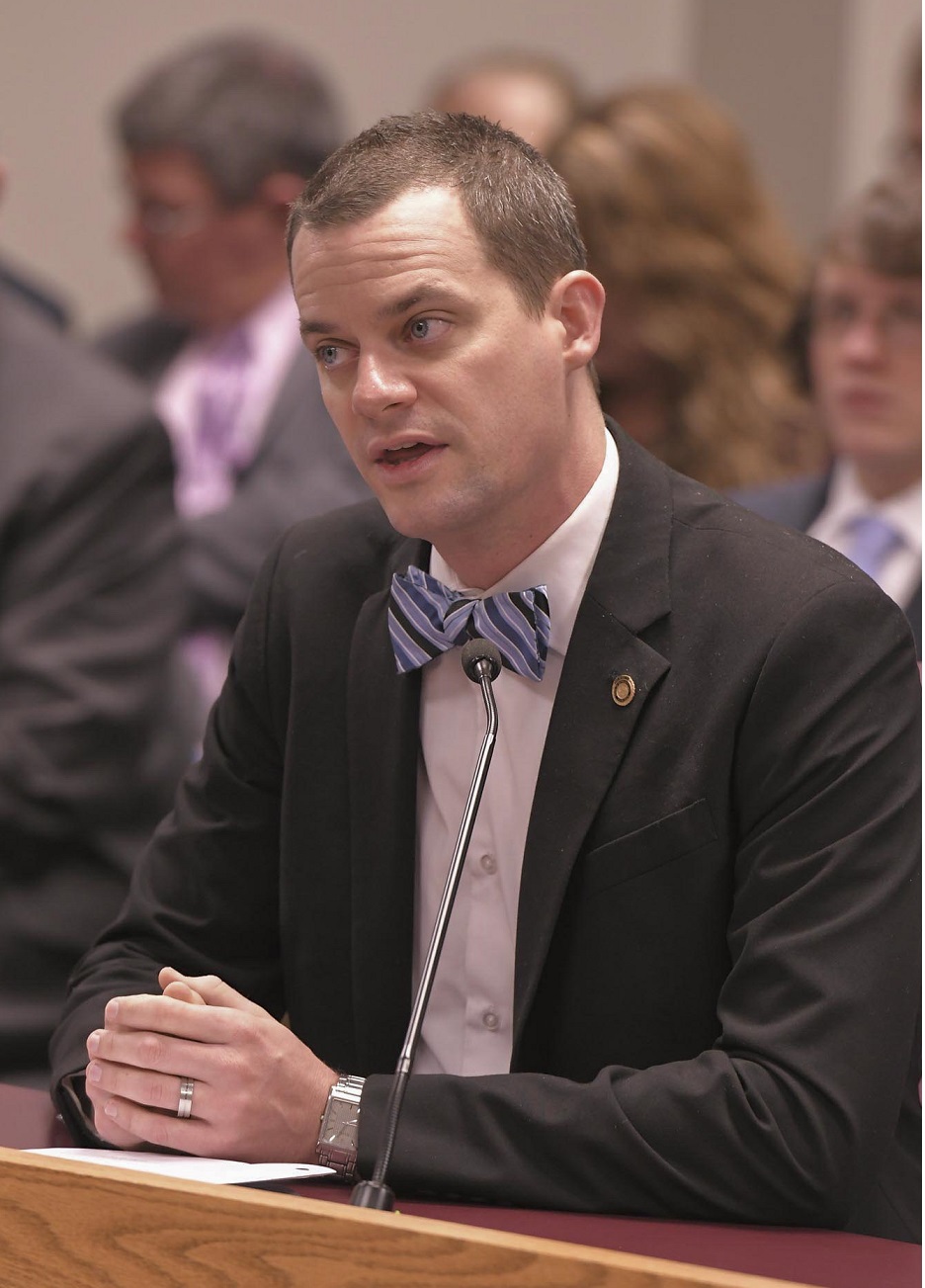House Budget Committee leaders have proposed deep cuts to the office of the Department of Health and Senior Services’ director because the Department has not provided data on a recent virus outbreak that left a state employee dead.

Committee Vice-Chairman Justin Alferman (R-Hermann) said prior to last week’s budget markup hearing that he would make such cuts if the information was not provided. The Department continued to stand by its argument that it cannot release the requested data without violating the Health Insurance Portability and Accountability Act (HIPAA).
Alferman’s proposal would cut more than $239-thousand in state revenue and another $925-thousand in federal funds from the director’s office. That represents the salaries of seven attorneys in the director’s office, the director, the assistant director, and the legislative liaison.
Alferman and House Budget Committee Chairman Scott Fitzpatrick (R-Shell Knob) say the information they want – the number of people in Missouri who tested positive for the antibodies to the Bourbon virus, indicating they have had it – would not include specific patient information that would violate HIPAA.
A department spokesperson on Wednesday night told the House Budget Committee two people in Missouri have tested positive for Bourbon virus, but did not offer information on how many have tested positive for the antibodies. The superintendent of eastern Missouri’s Meramec State Park died last year after contracting the virus from a tick bite. Alferman said he wants to know whether there is a risk to public health from the tick-borne illness.
He said the Department’s rationale is that releasing the number of people tested could allow someone to question park employees about whether they were screened and use a process of elimination to identify who was and was not tested – something Alferman called a “ridiculous” interpretation.

Democrats on the budget committee said while they might agree with Alferman about whether the Department should release that data, they don’t agree with cutting the department’s funding.
St. Louis Democrat Peter Merideth said the proposed cut could result in the firing of people in positions which work to enforce laws protecting Missouri’s seniors.
Other Republicans, however, agreed with Alferman. Representative Don Rone (R-Portageville) told the DHSS spokesperson that with as long as this issue has been developing, the DHSS’ director should have been in front of the committee and not a spokesperson. The director was instead in the nation’s capital that night.
“There’s nothing can be, in Washington D.C., any more important than letting the citizens of this state know that if there is a problem … we’ve got a job to do here and that is protect the people of the state of Missouri, and it’s not right that the director is not here, sitting here, taking these questions,” said Rone.
Alferman’s proposed cut was adopted as part of the committee’s budget proposal, which the committee has voted to send to the House floor. It will be debated there next week when lawmakers return from spring break.